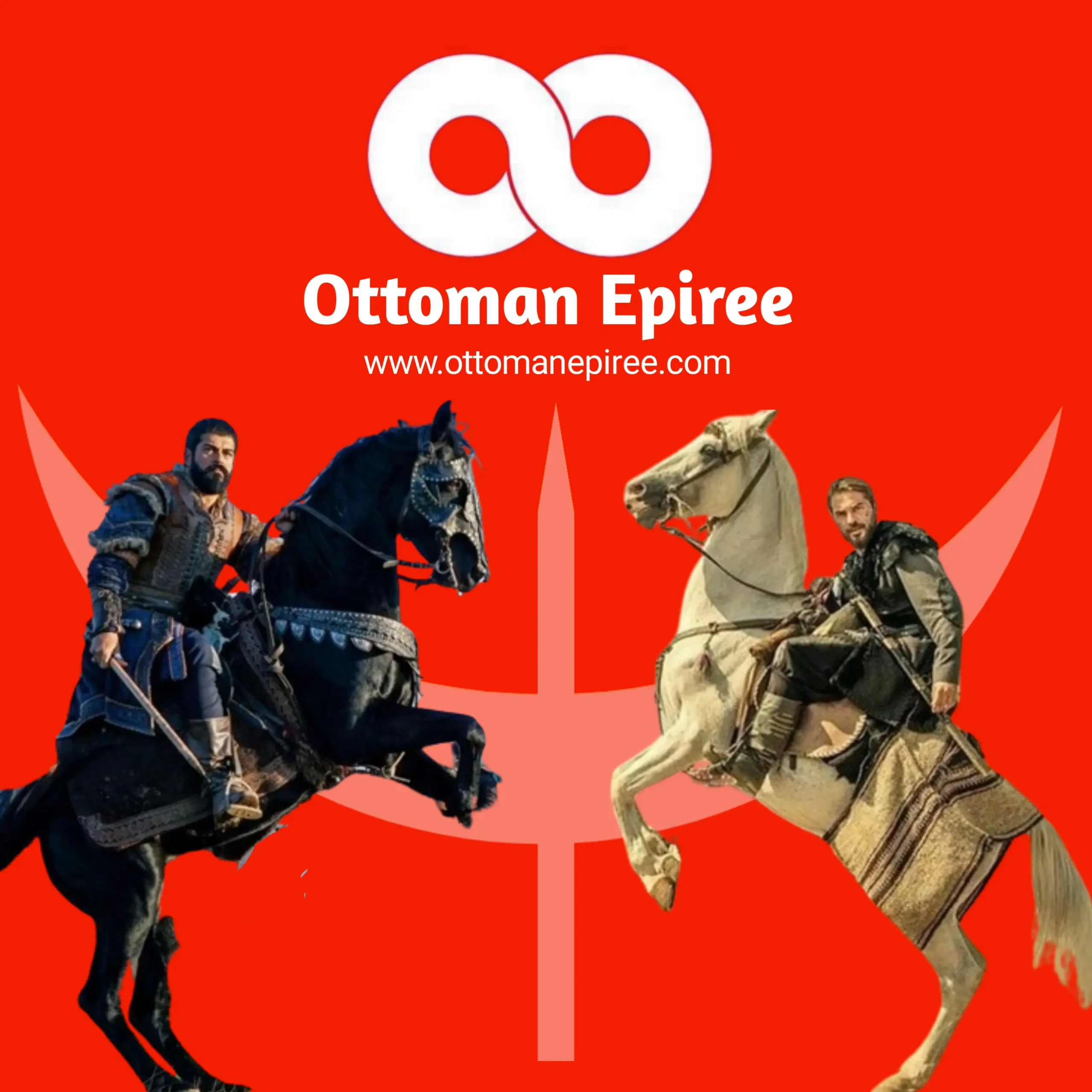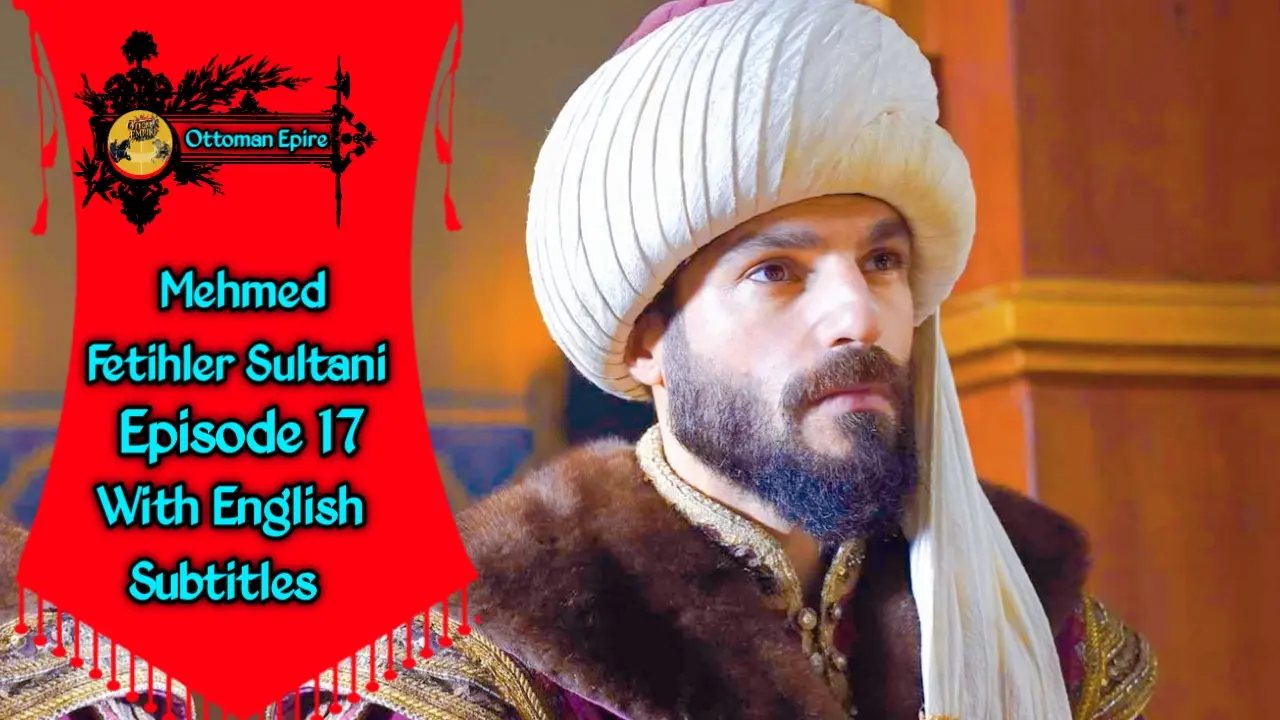Mehmed Fetihler Sultani Season 2 Episode 17
The Rise of Conflict and Betrayal
Episode 17 opens with the heavy atmosphere of betrayal and grief, shaping the direction of the story from the very beginning. Mehmed faces a double blow that would crush most rulers: the unexpected betrayal of Admiral Rizzo and the tragic death of Hayrettin. Instead of allowing despair to take control, Mehmed turns his sorrow into determination. His focus sharpens as he carefully plans how to bring justice.
Mehmed Fetihler Sultani Season 2 Episode 17
For him, Rizzo is no longer just a traitor but a symbol of dishonor that must be addressed. With the conviction that Rizzo cannot survive without hiding under the protection of the Pontus Empire, Mehmed sets a new tone for leadership, one that combines emotional resilience with sharp political foresight. This early stage of the episode pulls the audience deep into Mehmed’s mindset, showing how a ruler transforms personal loss into the strength to lead.
Mehmed’s Determination for Justice
As the story progresses, Mehmed shows that his vision goes far beyond vengeance. His demand that the Pontus Empire either surrender Rizzo or face the consequences is not just about punishing one man. It is about sending a clear message to friend and foe alike—that betrayal will never be tolerated and that the Ottoman Empire stands firm against treachery. This calculated stance gives Mehmed the aura of a leader who is both just and fearless. The dialogue and situations in this episode make it clear that his sense of justice is deeply tied to his vision of empire building. He does not simply chase revenge; he carefully weaves it into the larger political strategy. This balance of discipline and passion defines Mehmed’s role in the narrative and gives readers a sense of how leadership in history was often a mix of personal struggle and national responsibility.
Çandarlı’s Pain and Quest for Revenge
Parallel to Mehmed’s storyline, the grief of Çandarlı provides a personal and emotional layer to the episode. Being forced into a situation where he had to take the life of his own nephew creates deep sorrow, yet that same pain quickly transforms into determination for retribution. Çandarlı’s fixation on Rizzo becomes a narrative thread that intensifies the drama. His emotional burden is not portrayed as weakness but rather as a driving force that pushes him into action. This subplot resonates with readers because it reflects a universal truth: personal loss often fuels an even stronger desire for justice. The scenes featuring Çandarlı offer a contrast to Mehmed’s calculated strategies, showing a man caught between grief and rage. The character development here ensures that the story remains human at its core, even while dealing with grand themes of politics and empire.
The Strategic Role of Pontus
Pontus becomes a pivotal stage in the unfolding drama, not because of its power but because of the role it plays in Rizzo’s uncertain future. The entire question of whether the Pontus Empire will protect Rizzo or surrender him becomes a suspenseful turning point. The political weight of this decision is explored in detail, making the audience aware of how one act of betrayal by a single man can ripple across nations.
The narrative cleverly builds tension here, making the audience question the motives of Pontus leaders and how their choices will impact Mehmed’s broader plans. By focusing on Pontus, the episode expands the scope of the story beyond just the Ottoman and Byzantine rivalry, adding a layer of international intrigue. This enhances the complexity of the narrative and gives readers a clearer understanding of how fragile alliances shaped history.
Byzantine Politics and Notaras’ Return
On the other side of the conflict, Byzantium prepares for survival in its own way. Emperor Constantine, aware of the growing pressure of the Ottoman siege, seeks strength in familiar allies. His decision to bring back Notaras into the heart of the empire proves to be both bold and risky. Notaras, never one to waste time, quickly begins plotting strategies aimed directly at undermining the Ottoman advance. His focus falls on building alliances with the Kingdom of Serbia and the Karaman Beylik, knowing that these connections could corner the Ottomans. These moves highlight how Byzantium, despite its weakened state, still attempts to resist through diplomacy and cunning. The storytelling here makes clear that battles are not always won on the field; often, they are decided in council rooms where words and promises carry as much weight as swords and shields.
Alliances That Test Loyalty
The possibility of alliances with Serbia and Karaman introduces fresh layers of uncertainty into the story. Such partnerships would not only threaten Ottoman plans but also raise questions of loyalty among states that had previously appeared aligned with Mehmed. The idea that Serbia, once bound to the Ottomans, might side with Byzantium casts a shadow of doubt that adds suspense. Similarly, Karaman’s potential betrayal brings the threat uncomfortably close to home.
These developments highlight the fragile nature of politics during this era, where loyalties shifted as quickly as the winds of fortune. For the reader, this aspect of the episode creates anticipation, making it clear that victory for Mehmed is not just a matter of strength but of navigating an ever-changing political landscape where betrayal could come from any corner.
The Struggles Inside the Harem
While political intrigue unfolds outside, the Harem reflects its own form of turmoil. The news of Byzantium’s potential alliances creates ripples that reach even the palace walls. Mara Hatun, deeply connected to her Serbian roots, feels the emotional burden of Serbia’s possible betrayal. Gülşah Hatun, in contrast, feels the same weight from Karaman’s involvement. Both women struggle with guilt, as though the decisions of their homelands reflect a personal failure to Mehmed.
This tension inside the Harem adds an intimate contrast to the broader political drama. It shows how political events are not distant or abstract but deeply personal, affecting those closest to power. The episode uses these moments to remind viewers that the lives of women in the palace were not shielded from the storms of politics but were often pulled into them in unexpected ways.
Emotional Trials of Mara and Gülşah
The inner turmoil of Mara and Gülşah stands as a mirror to the greater theme of loyalty in this episode. Their personal struggles symbolize the emotional cost of political maneuvers. Both women, feeling torn between their roots and their loyalty to Mehmed, face an internal battle as intense as any fought on the battlefield. The narrative here connects the grand themes of empire with the personal challenges faced by individuals.
By showing how deeply these women are affected, the story creates a sense of empathy and connection for the audience. Readers are reminded that political alliances are not just decisions made by rulers but choices that affect families, friendships, and loyalties at every level. This layer of storytelling ensures that the drama remains relatable, grounding the larger-than-life events in very human emotions.
Building Toward the Great Siege
Every subplot in Episode 17 works together to build anticipation for the larger event looming on the horizon, the great siege. Mehmed’s plans for justice, Çandarlı’s burning desire for revenge, the uncertain role of Pontus, and Byzantium’s efforts to secure allies all converge into one narrative stream. The tension continues to rise, keeping readers on edge as they anticipate the moment when these threads will finally collide. This buildup ensures that the audience remains engaged, not only waiting for battles but also invested in the decisions and emotions driving the characters forward. By the end of the episode, the stage is set for monumental developments, and the audience is left eager for what comes next.
A Story of Loyalty, Strategy, and Human Emotion
Episode 17 ultimately captures the essence of historical drama by blending strategy with emotion. It is not just about armies preparing for war but about people dealing with betrayal, loss, ambition, and loyalty. Mehmed stands as the symbol of resilience, Çandarlı embodies the pain of personal loss, Notaras represents cunning strategy, and Mara and Gülşah reflect the emotional cost of politics. This combination gives the episode richness and depth, ensuring that it appeals not only to those fascinated by history but also to readers who are drawn to stories of human endurance and relationships. It is a reminder that history is never just about battles; it is about people, their choices, and the sacrifices they make.
Key Highlights of Mehmed Fetihler Sultani Season 2 Episode 17
| Main Event | Details | Impact on Story |
|---|---|---|
| Mehmed’s Resolve | After Rizzo’s actions and Hayrettin’s loss, Mehmed sets a clear plan for justice. | Shows his strength as a leader and builds suspense for Rizzo’s fate. |
| Çandarlı’s Struggle | Çandarlı suffers personal loss yet channels his pain toward confronting Rizzo. | Adds emotional depth and highlights loyalty and justice. |
| Pontus Dilemma | The Pontus Empire faces the choice to shelter or surrender Rizzo. | Raises political tension and curiosity about shifting alliances. |
| Notaras’ Return | Notaras reenters Byzantium and begins plotting with Serbia and Karaman. | Introduces new threats and tests Ottoman strategies before the siege. |
| Palace Trials | Mara and Gülşah feel the weight of alliances tied to their homelands. | Shows how political struggles affect personal lives inside the Harem. |
Episode 17 Summary (Highlights)
- Mehmed plans justice after Admiral Rizzo’s actions and the loss of Hayrettin.
- Çandarlı struggles with personal grief but focuses on confronting Rizzo.
- The Pontus Empire must decide whether to protect or surrender Rizzo.
- Notaras returns to Byzantium and starts building alliances with Serbia and Karaman.
- Mara and Gülşah face emotional trials inside the palace linked to their homelands.
- The story builds tension toward the upcoming great siege.
Frequently Asked Questions – Episode 17
Episode 17 highlights Mehmed’s response to Rizzo’s actions and the shifting political alliances.
Çandarlı deals with personal grief and channels it into seeking justice against Rizzo.
Pontus holds the key decision of whether to protect Rizzo or hand him over.
Notaras returns to Byzantium and creates new challenges by building alliances.
Mara and Gülşah face emotional struggles linked to their homelands and loyalty.

